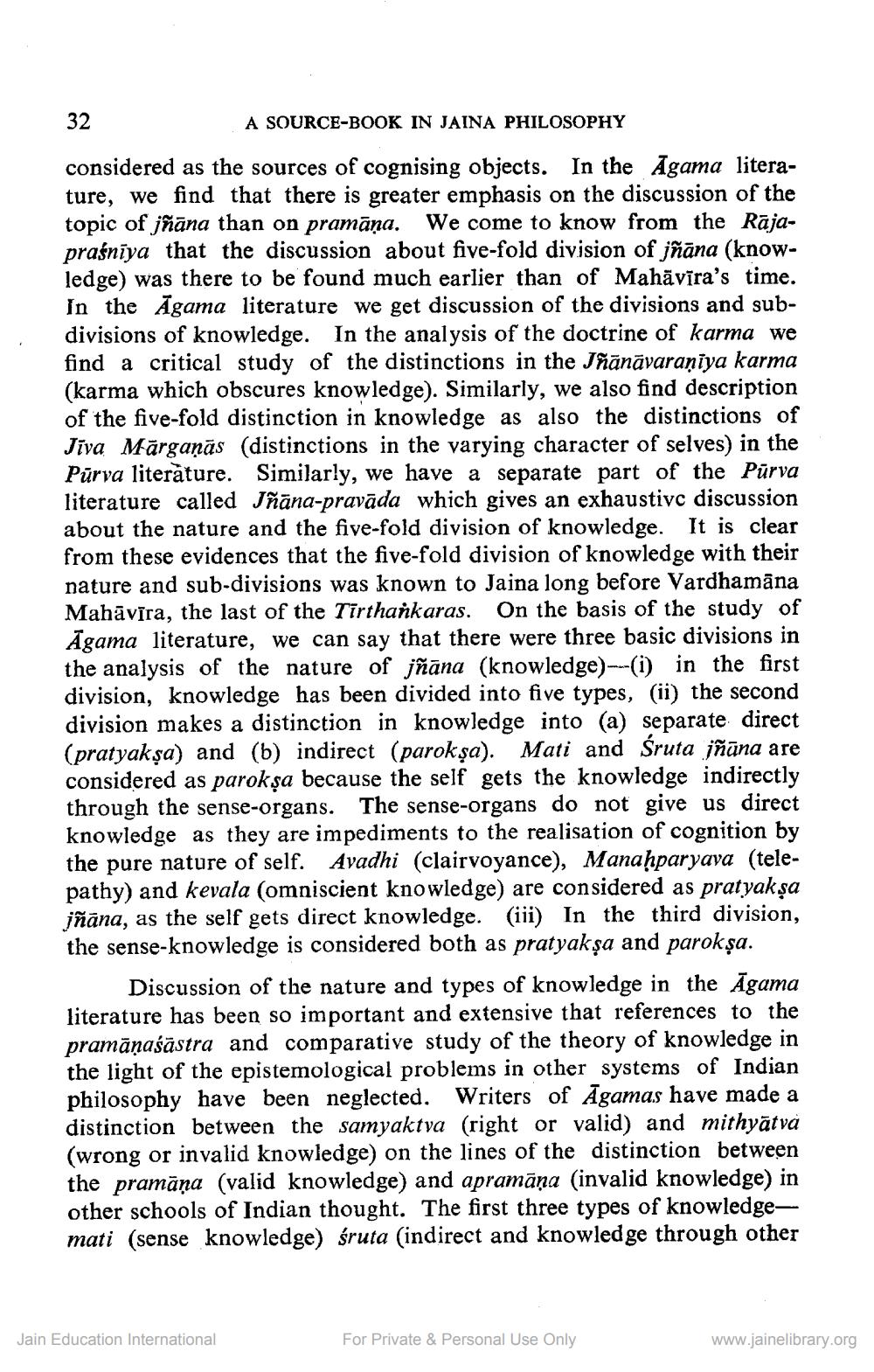________________
32
A SOURCE-BOOK IN JAINA PHILOSOPHY
considered as the sources of cognising objects. In the Agama literature, we find that there is greater emphasis on the discussion of the topic of jñāna than on pramāņa. We come to know from the Rājapraśnīya that the discussion about five-fold division of jñāna (knowledge) was there to be found much earlier than of Mahāvīra's time. În the Agama literature we get discussion of the divisions and subdivisions of knowledge. In the analysis of the doctrine of karma we find a critical study of the distinctions in the Jñānāvaraņiya karma (karma which obscures knowledge). Similarly, we also find description of the five-fold distinction in knowledge as also the distinctions of Jiva Mārgaņās (distinctions in the varying character of selves) in the Pūrva literature. Similarly, we have a separate part of the Pūrva literature called Jñāna-pravāda which gives an exhaustive discussion about the nature and the five-fold division of knowledge. It is clear from these evidences that the five-fold division of knowledge with their nature and sub-divisions was known to Jaina long before Vardhamāna Mahāvīra, the last of the Tirthankaras. On the basis of the study of Āgama literature, we can say that there were three basic divisions in the analysis of the nature of jñāna (knowledge)---(i) in the first division, knowledge has been divided into five types, (ii) the second division makes a distinction in knowledge into (a) separate direct (pratyakşa) and (b) indirect (parokşa). Mati and Śruta jñāna are considered as parokșa because the self gets the knowledge indirectly through the sense-organs. The sense-organs do not give us direct knowledge as they are impediments to the realisation of cognition by the pure nature of self. Avadhi (clairvoyance), Manaḥparyava (telepathy) and kevala (omniscient knowledge) are considered as pratyakşa jñāna, as the self gets direct knowledge. (iii) In the third division, the sense-knowledge is considered both as pratyakşa and parokşa.
Discussion of the nature and types of knowledge in the Agama literature has been so important and extensive that references to the pramānaśāstra and comparative study of the theory of knowledge in the light of the epistemological problems in other systems of Indian philosophy have been neglected. Writers of Āgamas have made a distinction between the samyaktva (right or valid) and mithyātvà (wrong or invalid knowledge) on the lines of the distinction between the pramāņa (valid knowledge) and apramāņa (invalid knowledge) in other schools of Indian thought. The first three types of knowledgemati (sense knowledge) śruta (indirect and knowledge through other
Jain Education International
For Private & Personal Use Only
www.jainelibrary.org




